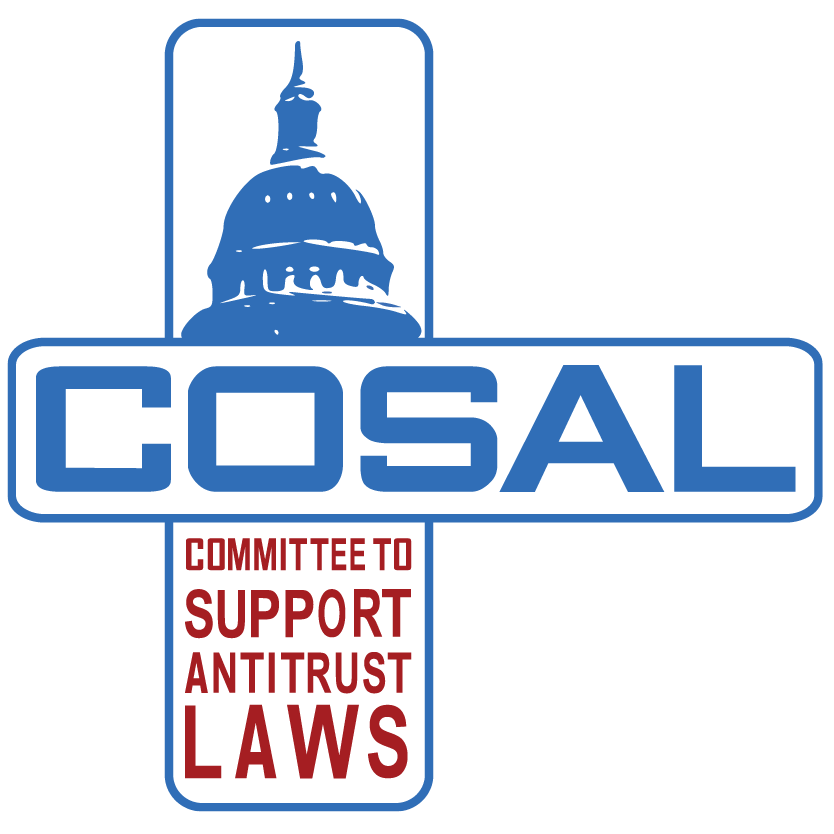COSAL’s Amicus Brief in Atlantic City Hotels Algorithmic Price-Fixing Case Covered by Law360
Law360 covered COSAL’s filing of an amicus brief in the Third Circuit in the Atlantic City Hotels algorithmic price-fixing case.
From Law360:
Hotel guests accusing a group of Atlantic City properties of using shared software to fix room rates are getting a helping hand in their Third Circuit fight to revive their suit from antimonopoly interest groups, who filed in separate amicus briefs in support of their effort this week.
Three pro-enforcement groups — the American Antitrust Institute, the Open Markets Institute and the Committee to Support the Antitrust Laws — all called on the circuit court to reverse an October ruling dismissing the case in New Jersey federal court, claiming that the lower court was effectively paving the way for algorithmic price-fixers to conspire while avoiding the "hallmarks of human collusion."
In her opinion, U.S. District Judge Karen M. Williams said the proposed class of hotel guests failed to sufficiently allege that the major Atlantic City hotels — including Caesars Entertainment, MGM, Hard Rock and others — actually exchanged confidential pricing information when they used the Rainmaker algorithmic pricing software.
But according to the anti-monopoly groups, Judge Williams' decision ignores the way in which new pricing software like Cendyn Group's Rainmaker can replace traditional, and clearly unlawful, price-fixing communication between would-be competitors.
Whereas firms in the predigital age may have had to surreptitiously engage in direct communications to try to fix and inflate prices, they can now rely on a technological middle man to handle the dirty work of comparing pricing data and spitting out recommendations for the highest prices the market will bear, the antitrust interest groups say. All the while, they argue, the actual firms can feign competition and keep themselves out of the direct conspiracy.
"The decision … threatens to sanction the formation and maintenance of business cartels merely because modern technology fulfills a role that would traditionally be condemned as unlawful if effectuated by human actors," the Committee to Support the Antitrust Laws, or CSAL, writes in its friend-of-the-court brief. "The district court effectively blessed the defendants-appellees' alleged cartel, which inflated prices by operation of [the hotels'] adoption of a common pricing algorithm. Antitrust analysis should be flexible to account for the modern mechanisms by which cartelists seek to achieve their age-old goal to distort competitive price-setting."
COSAL’s brief argues that the lower court’s order misapplied the law and threatens to chill private enforcement of the antitrust laws: specifically (1) the district court improperly isolated individual pieces of the complaint to determine whether each, standing alone, was sufficient; (2) the district court misapplied the law by requiring plaintiffs to plead that defendants entered the conspiracy at the same time; (3) the district court similarly misapplied the law by finding that plaintiffs’ per se price-fixing claim hinged on whether the information the Hotel Owners input in the pricing algorithm was publicly-available; (4) the court incorrectly labeled the conduct at issue as vertical or hybrid horizontal-and-vertical, when the conspiracy was solely horizontal and, accordingly, should be evaluated as a per se violation.

